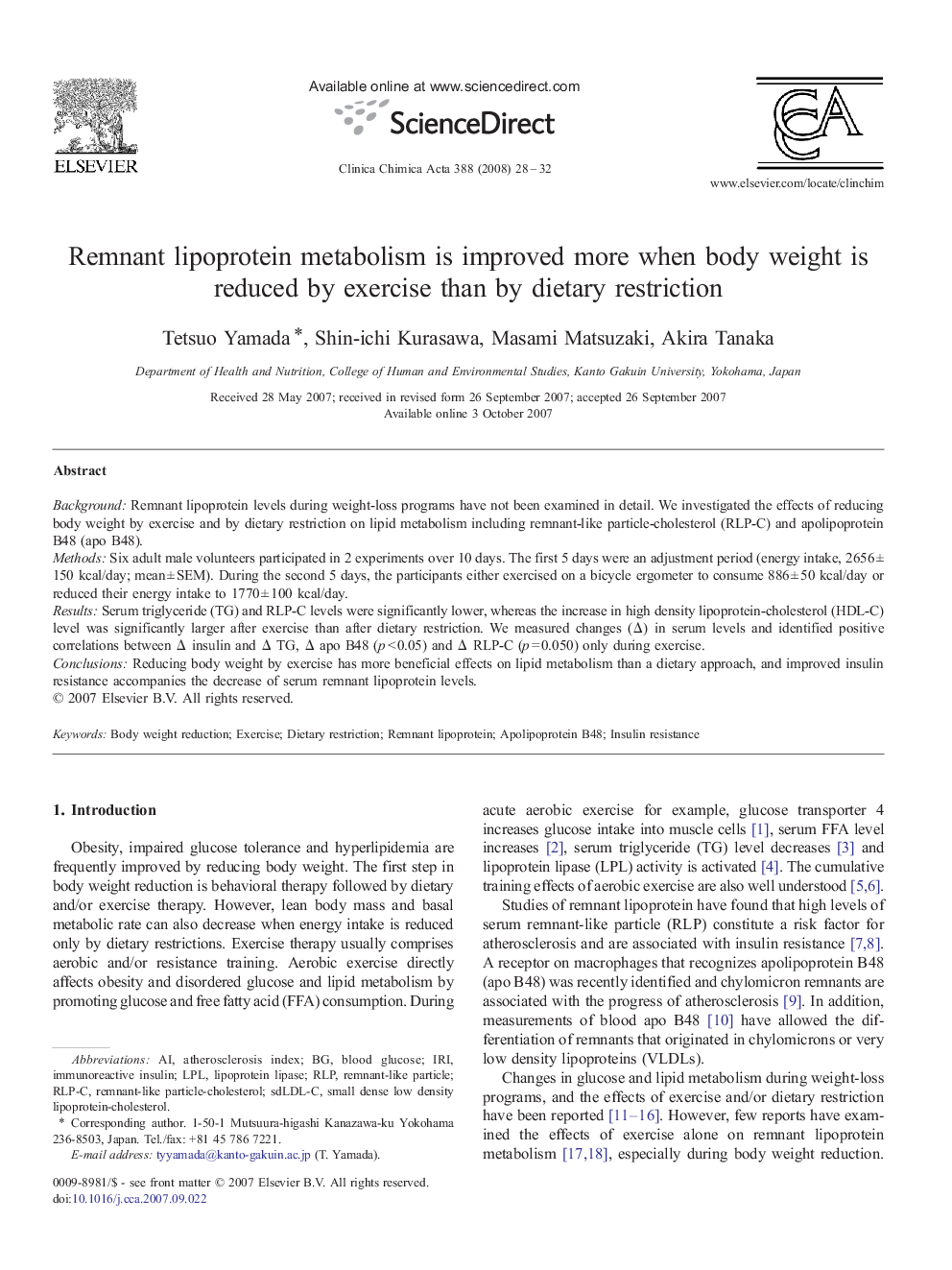| Article ID | Journal | Published Year | Pages | File Type |
|---|---|---|---|---|
| 1967336 | Clinica Chimica Acta | 2008 | 5 Pages |
BackgroundRemnant lipoprotein levels during weight-loss programs have not been examined in detail. We investigated the effects of reducing body weight by exercise and by dietary restriction on lipid metabolism including remnant-like particle-cholesterol (RLP-C) and apolipoprotein B48 (apo B48).MethodsSix adult male volunteers participated in 2 experiments over 10 days. The first 5 days were an adjustment period (energy intake, 2656 ±150 kcal/day; mean ± SEM). During the second 5 days, the participants either exercised on a bicycle ergometer to consume 886 ± 50 kcal/day or reduced their energy intake to 1770 ± 100 kcal/day.ResultsSerum triglyceride (TG) and RLP-C levels were significantly lower, whereas the increase in high density lipoprotein-cholesterol (HDL-C) level was significantly larger after exercise than after dietary restriction. We measured changes (Δ) in serum levels and identified positive correlations between Δ insulin and Δ TG, Δ apo B48 (p < 0.05) and Δ RLP-C (p = 0.050) only during exercise.ConclusionsReducing body weight by exercise has more beneficial effects on lipid metabolism than a dietary approach, and improved insulin resistance accompanies the decrease of serum remnant lipoprotein levels.
